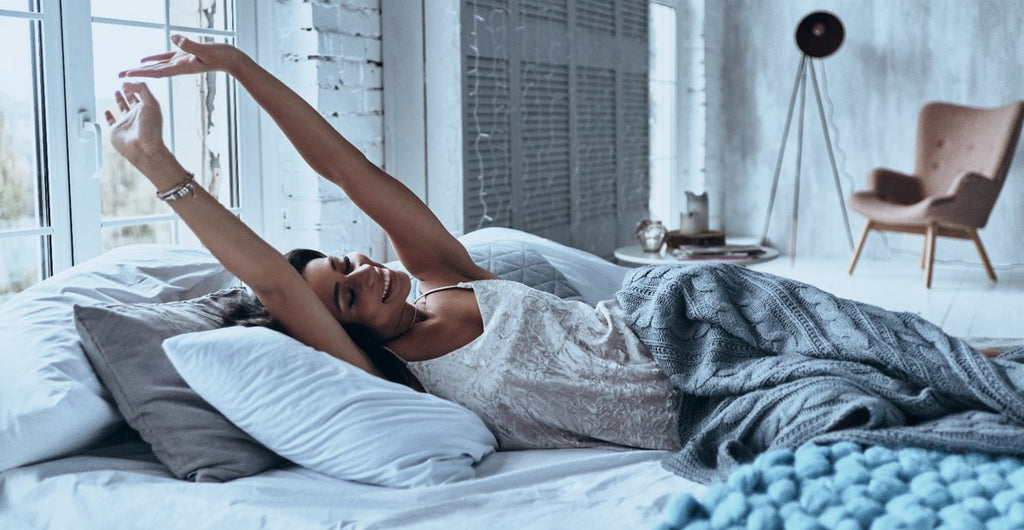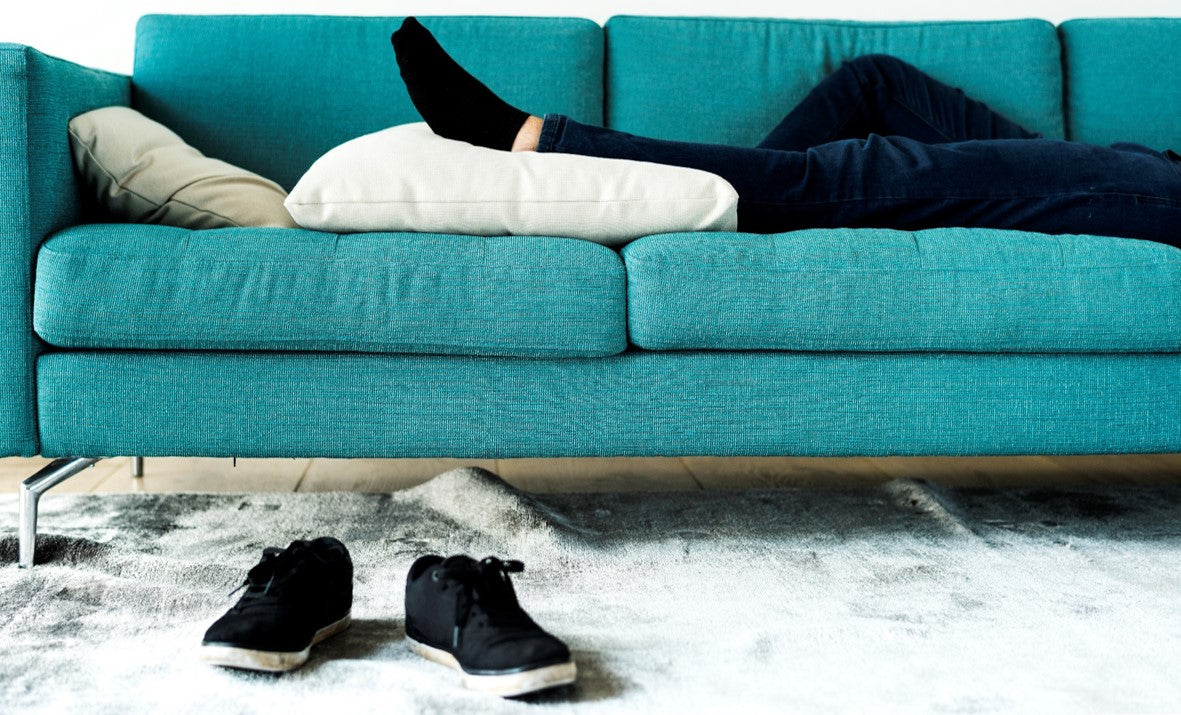- Home
- SHOP ▾
- Store Locator
- Media
- Product Information ▾
- Our Associations ▾
- Warranties ▾
- Advice ▾
- Blog

Sleep is vital to our everyday well being. Getting the right amount of regular sleep will make you feel more energised and motivated, helping you to achieve other goals that you might have for this year, such as doing more exercise,
Try to go to bed and wake up at the same time. It will help create a natural rhythm, and sleep-wake cycle for your body.
Also ensure you are getting the recommended amount of sleep for someone your age. For an adult this is 7-9 hours a night. For a guide on the recommended sleep time for different ages check out https://www.sleephealthfoundation.org.au/how-much-sleep-do-you-really-need.html
Look at what can influence the quality of your sleep, and work on making changes where needed.
“Another reason people get lower-quality sleep following alcohol is that it blocks REM sleep, which is often considered the most restorative type of sleep. With less REM sleep, you’re likely to wake up feeling groggy and unfocused.” - sleepfoundation.org
Ensure your bedroom offers the best possible sleep environment
“A cool 16-18°C (60-65°F) is thought to be an ideal temperature in a bedroom. Temperatures over 24°C (71°F) are likely to cause restlessness, while a cold room of about 12°C (53°F) will make it difficult to drop off.” - Sleep Council UK
It may take a little adjustment for you to get into a new routine, but just remember that if you are getting the right amount of sleep regularly you should feel better and have more energy for the things you want to achieve.
Sleep well, live well

If you are finding yourself feeling tired and sleepy during the day a nap may be beneficial. Reducing fatigue, increasing alertness, improving your mood, performance and reaction time.
A nap may also help you prepare for and be able to better cope with a late night out, shift work or a long drive.
As recognised by the Sleep Health Foundation of Australia
"Naps can also be good at times when you feel sleepy and you are worried about how well you can do things if you continue without rest. If you feel drowsy during a long drive in the car, a short nap can be taken in a rest area. This will make you more alert during the next phase of the drive.
Some studies have found that if you start to feel sleepy while driving, it helps to have a cup of coffee, immediately followed by a nap of about 15 minutes. The caffeine takes about 30 minutes to start working so when you wake up both the nap and the caffeine will start to make you feel more alert."
The secret to waking up refreshed from a nap is setting an alarm and making sure you don’t nap for too long.
Ideally a nap should only be 15-30 minutes long. This will ensure that when you wake you are still in the lightest stage of non-REM sleep. Any longer, where you enter the deeper stages of sleep you risk waking up with what is known as sleep inertia. Feeling groggy and perhaps more tired and with less energy than before your nap.
However “If you’re lucky enough to be able to lie down for 90 minutes, your body should have time to make it through one complete sleep cycle where you go from the lightest stage through the deepest stage of sleep and back again, so you’ll wake feeling refreshed.”- sleep.org
“A cool 16-18°C (60-65°F) is thought to be an ideal temperature in a bedroom. Temperatures over 24°C (71°F) are likely to cause restlessness, while a cold room of about 12°C (53°F) will make it difficult to drop off.” - Sleep Council UK
Be mindful to remember that a nap does not replace a good night’s sleep. A nap too late in the day may make it harder to fall asleep at night. And if you find that you are relying on naps during the day or you are not able to sleep at night due to naps talk to your doctor.

Whether it’s a cup in the morning, to give you that kick start, or one in the afternoon with friends, many of us enjoy our daily coffee or coffees.
A naturally occurring stimulant, caffeine can be found in coffee, tea, chocolate and many other foods and drinks. And whilst it has no nutritional value in our diets, what you may not realise, is that while it may give us a much needed wake-up or boost during the day, it can also affect our sleep and contribute to us feeling more tired the following day.
Caffeine is absorbed quickly into our blood stream and reaches its full potential within 30-60 minutes. It's affects lasting 3-7 hours, it can take up to 24 hours to be fully eliminated from our bodies.
And as explained by an article from the Caffineinfomer
“Not all caffeine can immediately be broken down by the liver, so some free caffeine remains in general circulation. Some of which makes its way to the brain. The caffeine molecule is similar in shape to the adenosine molecule which is a neurotransmitter. Since these two molecules are so similar, caffeine molecules are able to bind to the brain’s adenosine receptors and therefore block adenosine from binding and doing its job”.
"Adenosine plays a role in the sleep-wake cycle. When adenosine binds to enough receptors, it signals the brain that it is time for rest or sleep. Caffeine doesn’t replace the person’s need for sleep but masks tiredness since adenosine can no longer do what it is intended to do"
"This process also interferes with the dopamine system in the brain. Dopamine, which is the “feel-good” neurotransmitter becomes more plentiful when adenosine is blocked by caffeine and this causes increased feelings of well-being and happiness. Furthermore, elevated levels of adenosine in the blood cause the adrenal glands to release adrenaline. This stimulating hormone further adds to the feelings of alertness and energy."
But at bedtime, by inhibiting the adenosine receptors, in our brain which play a role in our sleep wake cycle caffeine can mask tiredness, disrupt our sleep and alter our Circadian Rhythm.
It may also result in the quality of our sleep not been as good as needed. Not only resulting in a lighter and more restless sleep but causing us to wake up in the night for trips to the bathroom.
The effects varying between individuals as we all have different sensitivity levels and its effects can be affected by other lifestyle choices such as smoking (caffeine is metabolised by the body more rapidly in people who use nicotine) or at different stages of life. Older people tend to be more sensitive to its effects while I has been shown to be slower among pregnant women.
And as the average adult needs about 8 hours of good quality sleep a night to function effectively if Caffeine is distributing this can cause us to feel tired, unrested and unmotivated in the following days. Often resulting in one reaching for another cup of coffee and repeating the cycle.
There are no guidelines for the intake of caffeine.
A Food Standards Australia and New Zealand (FSANZ) Expert Working group has however recognised that
“there was evidence of increased anxiety levels in children at doses of about 3 mg of caffeine per kilogram of body weight per day. The anxiety level for children aged 5-12 equates to a caffeine dose of 95 mg per day (approximately two cans of cola) and about 210 mg per day (approximately three cups of instant coffee) for adults”
They have also identified how much caffeine can be found in some food or drinks as a guide here.
If you are drinking or consuming large amounts of caffeine consider cutting back. Just don’t stop suddenly, gradually cut back. If your body is used to caffeine as stimulant, simply stopping may give you headaches.
And, don’t drink coffee too close to bedtime. And you may need to try having that last one at different times to see what works best for you because as recognised by the Sleep Health Foundation
“There are different views on how many hours before bed you should have your last caffeine intake. Some say caffeine should be avoided for at least 3 to 7 hours before going to sleep. Others say no caffeine after lunch time if you have sleep problems. Many people find that their sleep improves with less caffeine or only having caffeine earlier in the day.”
And remember when you are sleeping well you are living well